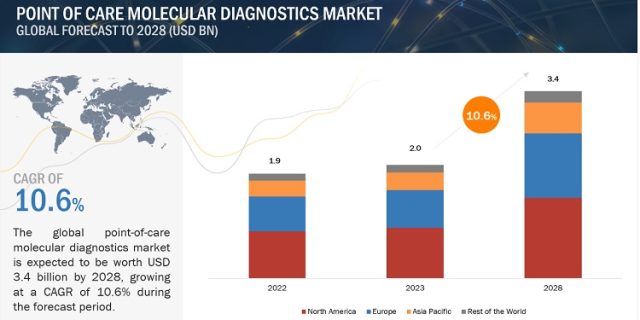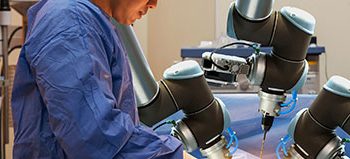
The global point of care molecular diagnostics market is experiencing rapid growth, projected to expand from $2.0 billion in 2023 to $3.4 billion by 2028 at a compound annual growth rate of 10.6%. This surge is being driven by the rising incidence of infectious diseases, cancer, and other acute and chronic conditions worldwide. As healthcare providers increasingly focus on improving facilities and infrastructure, demand for fast, accurate diagnostic testing at the point of care is escalating.
However, uncertain reimbursement policies and a shortage of high-complexity testing facilities capable of performing point of care molecular diagnostics have posed obstacles to greater market penetration. Reimbursement remains a contentious issue, with Medicare revising payment mechanisms for certain in vitro diagnostic tests in recent years. Coverage policies can also limit testing for screening purposes in patients without an established condition.
Download a PDF Brochure: https://www.marketsandmarkets.com/pdfdownloadNew.asp?id=143524127
Despite these challenges, emerging markets in countries like India, South Korea, Brazil, and Mexico present immense growth opportunities. Relatively relaxed regulatory environments, healthcare infrastructure growth, expanding patient populations, and increasing healthcare spending are attractive to point of care diagnostics companies in these regions.
A potential disruptive threat looms in the form of alternative rapid testing technologies, particularly for infectious diseases like COVID-19. Antigen and serological tests can deliver results in 15 minutes at lower costs compared to molecular diagnostics. However, molecular methods offer higher accuracy and sensitivity, which could sustain demand amid the twin burdens of infectious disease and chronic illness surveillance.
Market leaders like Abbott, Roche, bioMerieux, Danaher, and QIAGEN continue driving innovation with expanded test menus, panel assays, and seamless integration with healthcare information systems. As the point of care diagnostics ecosystem evolves, these companies are poised to capitalize on rising demand for fast, informative testing that empowers clinicians to rapidly triage patients and initiate effective treatment pathways.


